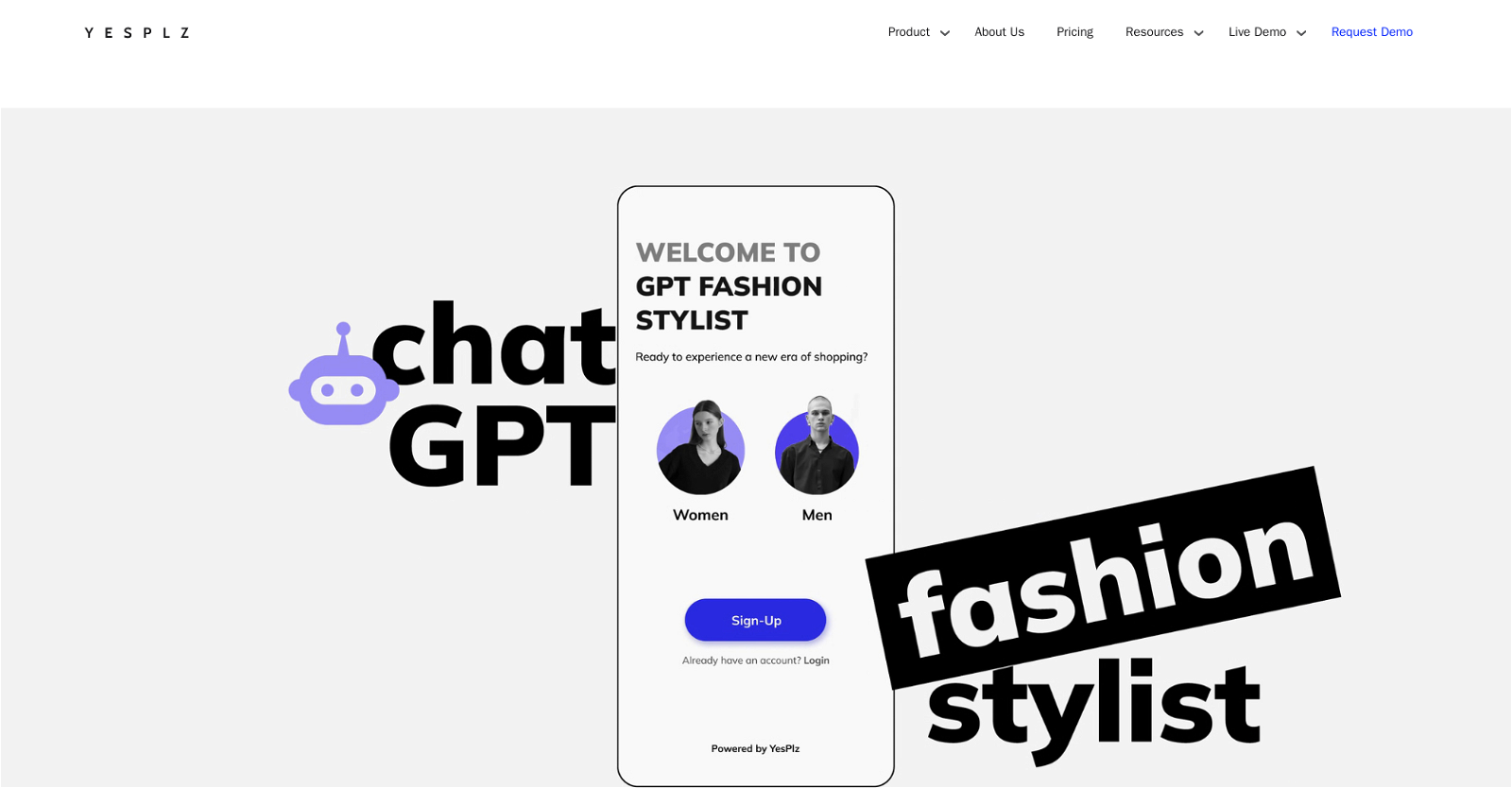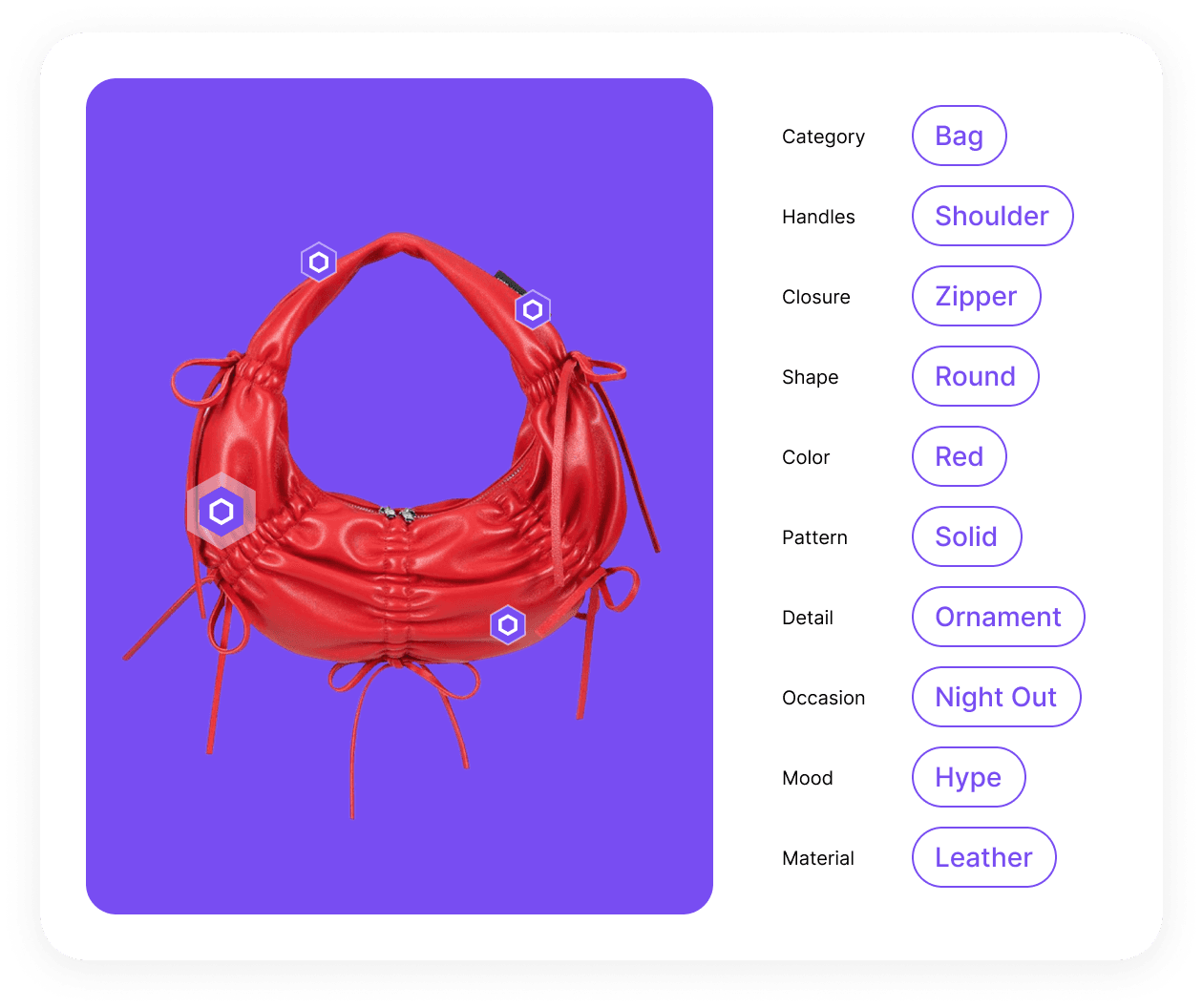
YesPlz AI: Complete Buyer's Guide
Fashion-specialized AI product tagging platform
YesPlz AI is a fashion-specialized AI product tagging platform that transforms how ecommerce retailers manage catalog attributes through computer vision and natural language processing. The platform combines fashion expertise from Parsons and FIT fashion schools with AI automation to deliver subjective attribute tagging capabilities that generic computer vision solutions cannot match[50][56].
Market Position & Maturity
Market Standing
YesPlz AI occupies a specialized niche within the broader AI product tagging market, focusing specifically on fashion retail applications rather than competing as a generalist solution.
Company Maturity
The company's business maturity appears aligned with growth-stage operations, evidenced by its ability to serve both SMB and enterprise customers with differentiated service models.
Growth Trajectory
Customer growth indicators suggest healthy adoption within the target market, with documented success stories spanning SMB retailers like Melimile and CuteDresses to enterprise implementations at Kolon Mall and The Handsome[64][65][66].
Strategic Partnerships
Strategic partnerships and ecosystem positioning appear concentrated within the Shopify marketplace, providing distribution advantages for SMB fashion retailers but potentially limiting broader market reach.
Longevity Assessment
While fashion specialization provides competitive differentiation, it also limits total addressable market compared to generalist AI tagging solutions. The platform's ability to serve both SMB and enterprise segments suggests sufficient market depth to support sustainable operations, though growth potential may be constrained by vertical focus[50][56].
Proof of Capabilities
Customer Evidence
Melimile and CuteDresses achieved 75% cost reduction in product tagging operations, reducing manual processing time from 80 hours to 2-4 hours for 2,000 SKUs while saving $1,400 per batch[64]. Kolon Mall's enterprise implementation provides evidence of revenue impact, achieving a 15% sales increase and 10% higher average cart value through AI-powered product discovery features[65].
Quantified Outcomes
The platform enables 80 personnel hours monthly reallocation from manual tagging to strategic activities, representing significant labor cost savings beyond direct processing cost reductions[64]. Processing speed improvements show 95% time reduction compared to manual methods, enabling real-time catalog management that manual processes cannot support[64].
Case Study Analysis
Kolon Mall's implementation resolved 'cold start' problems in product recommendations, with the merchandising team reporting 'higher conversion rates with significant increases in page views'[65].
Market Validation
Market validation emerges through the platform's ability to serve diverse customer segments effectively. SMB fashion retailers achieve rapid ROI through Shopify app integration, while enterprise customers access custom development capabilities for unique business requirements[64][65][66].
Competitive Wins
Competitive displacement evidence appears in customer selection decisions favoring YesPlz AI's rapid deployment over competitors' longer implementation timelines. The 3-5 day deployment compared to industry-standard 4-8 week implementations provides clear competitive advantage for time-sensitive retailers[64].
Reference Customers
Reference customer diversity spans multiple fashion retail segments, from direct-to-consumer brands like Melimile to enterprise retailers like Kolon Mall, indicating broad applicability within the fashion vertical[64][65].
AI Technology
YesPlz AI employs a dual-AI architecture combining computer vision and natural language processing specifically trained for fashion retail applications. The platform's computer vision engine identifies physical attributes like silhouette, fabric texture, and color variations, while its NLP component extracts contextual understanding for subjective attributes such as 'formal versus casual' styling and occasion-based categorization[50][56].
Architecture
The platform's API-first integration architecture enables seamless connectivity with existing ecommerce systems. For Shopify users, pre-built app integration achieves deployment in 3-5 days without developer resources[64]. Non-Shopify platforms utilize CSV feed processing that adds only 1-2 hours of technical labor while maintaining rapid deployment timelines[64].
Primary Competitors
Primary competitors include Vue.ai for enterprise implementations, Pixyle.ai for high-volume processing, and Impact Analytics for accuracy-focused solutions[25][60][63].
Competitive Advantages
Competitive advantages center on fashion vertical specialization and implementation speed. YesPlz AI's 3-5 day deployment contrasts sharply with Vue.ai's 12-16 week enterprise implementations, enabling capture of time-sensitive customers seeking immediate value realization[64].
Market Positioning
Market positioning reveals YesPlz AI's specialized niche strategy within the broader AI tagging market. While claiming strong SMB fashion presence through Shopify distribution[49][54], the platform's limited visibility in broader industry rankings suggests niche rather than dominant market position compared to enterprise-focused competitors.
Win/Loss Scenarios
Win/loss scenarios favor YesPlz AI for fashion retailers prioritizing rapid deployment and subjective attribute tagging. Vue.ai wins for enterprise retailers requiring extensive PIM integration despite longer timelines[25][31]. Pixyle.ai serves retailers needing high-volume processing without subjective attribute requirements[60].
Key Features

Pros & Cons
Use Cases
Integrations
Pricing
Featured In Articles
Comprehensive analysis of Product Tagging for Ecommerce for Ecommerce businesses and online retailers. Expert evaluation of features, pricing, and implementation.
How We Researched This Guide
About This Guide: This comprehensive analysis is based on extensive competitive intelligence and real-world implementation data from leading AI vendors. StayModern updates this guide quarterly to reflect market developments and vendor performance changes.
68+ verified sources per analysis including official documentation, customer reviews, analyst reports, and industry publications.
- • Vendor documentation & whitepapers
- • Customer testimonials & case studies
- • Third-party analyst assessments
- • Industry benchmarking reports
Standardized assessment framework across 8 key dimensions for objective comparison.
- • Technology capabilities & architecture
- • Market position & customer evidence
- • Implementation experience & support
- • Pricing value & competitive position
Research is refreshed every 90 days to capture market changes and new vendor capabilities.
- • New product releases & features
- • Market positioning changes
- • Customer feedback integration
- • Competitive landscape shifts
Every claim is source-linked with direct citations to original materials for verification.
- • Clickable citation links
- • Original source attribution
- • Date stamps for currency
- • Quality score validation
Analysis follows systematic research protocols with consistent evaluation frameworks.
- • Standardized assessment criteria
- • Multi-source verification process
- • Consistent evaluation methodology
- • Quality assurance protocols
Buyer-focused analysis with transparent methodology and factual accuracy commitment.
- • Objective comparative analysis
- • Transparent research methodology
- • Factual accuracy commitment
- • Continuous quality improvement
Quality Commitment: If you find any inaccuracies in our analysis on this page, please contact us at research@staymodern.ai. We're committed to maintaining the highest standards of research integrity and will investigate and correct any issues promptly.